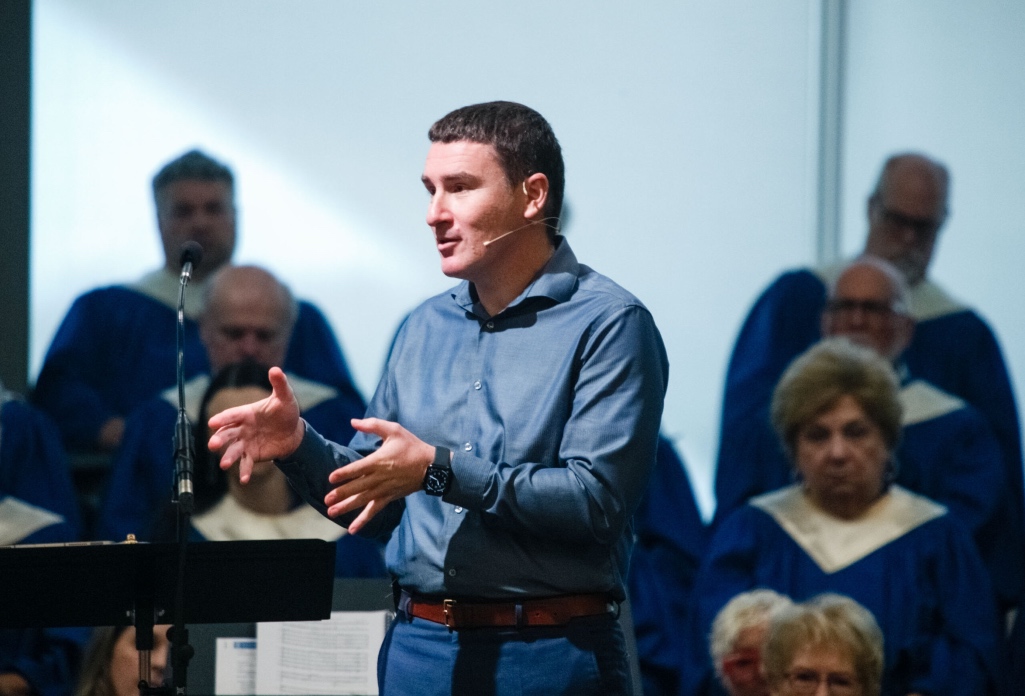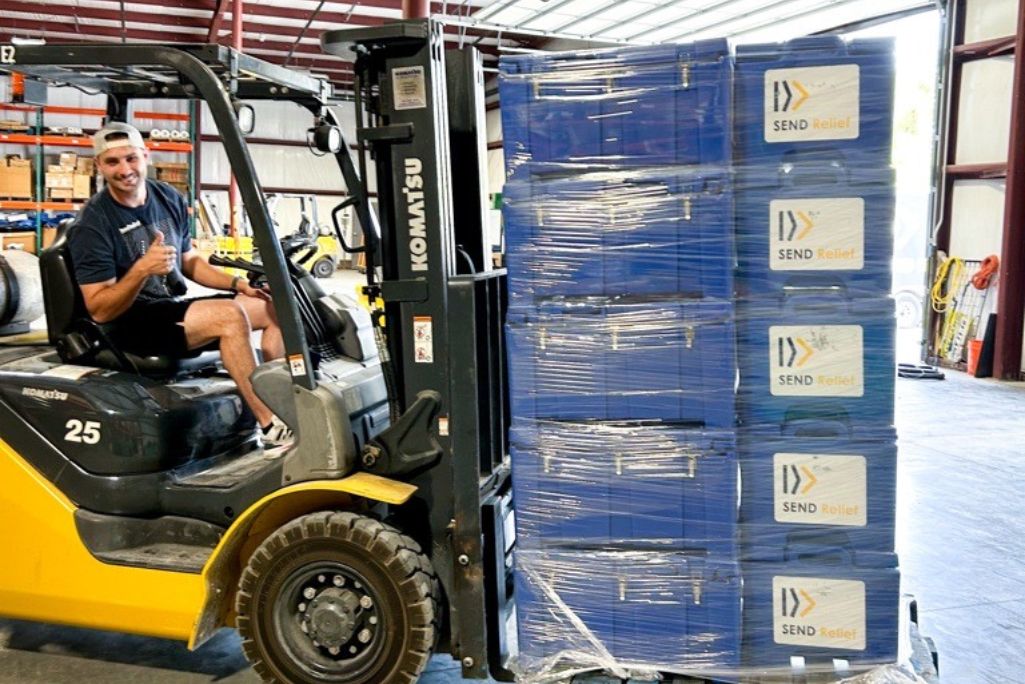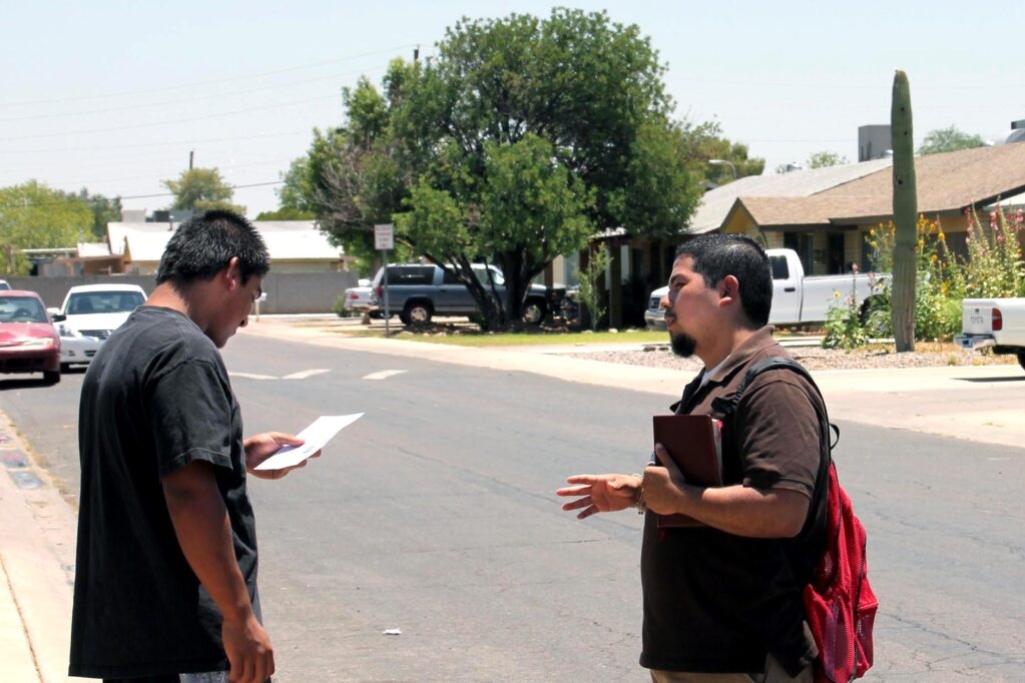
Yaroslav “Slavik” Pyzh addresses members of First Baptist Church of Nashville, Tenn., during a previous visit in November 2022.
NASHVILLE — Ukrainian Baptist pastor and educator Yaroslav “Slavik” Pyzh, a Southwestern Baptist Theological Seminary doctoral graduate, remembers friends he made earlier in his education at Moscow Baptist Theological Seminary in Russia.
As Russia’s war on Ukraine nears its second year, Pyzh continues to pray for God’s miracle to stop the assault in which the U.S. government says Russia has committed war crimes. But Pyzh, a church planter, pastor and president of Ukrainian Baptist Theological Seminary (UBTS) in Lviv, finds it difficult to pray for Russia.
“I think there’s always a time for everything, a time to throw rocks and a time to gather rocks. Now is time to pray for Ukraine. Then we will pray for Russia,” Pyzh told Baptist Press while visiting Nashville First Baptist Church Feb. 19. “You have to stop the bleeding first and then do the reconciliation. Right now, we are bleeding.
“Now I think, I feel sorry for my Russian brothers and sisters, because this is a time when they have to stand out and call evil ‘evil.’”
Ukrainian Christians are tiring as the war continues far longer than the nation anticipated, Pyzh told Baptist Press, but assures Southern Baptists of the nation’s intent to persevere.
“The Ukrainians will fight as long as we have some help. I would encourage Southern Baptists to understand that giving up for us, giving up our land or making some sort of North-South Korea scenario is not what we would like to happen,” Pyzh said. “We will fight as long as we can.
“I would like to say for my brothers and sisters (in Christ) they have to remember that this is not about political agenda. It’s about real people living in that part of the country, the ones that they share a faith with. So if they could be faithful to their Lord and to their brothers and sisters and support us in our fight, I would appreciate that.”
Through Feb. 12, about 7,200 civilians had been killed in the war in Ukraine since Russia invaded the country Feb. 24, 2022, the Office of the U.N. High Commissioner for Human Rights (OHCHR) reported. Nearly 11,760 had been injured.
Russia is guilty of war crimes, U.S. Vice President Kamala Harris said Feb. 18 at the Munich Security Conference in Germany.
“Russian forces have pursued a widespread and systemic attack against a civilian population — gruesome acts of murder, torture, rape and deportation,” The Associated Press quoted Harris. “Execution-style killings, beatings and electrocution” has been evidenced, Harris said.
U.S. President Joe Biden visited Ukraine Feb. 20 ahead of the one-year anniversary of the war, promising continued support.
Send Relief and numerous Southern Baptist churches have supported UBTS financially and materially as it ministers to internally displaced persons in Ukraine, supports church planting and works to spread the gospel across the nation. UBTS repurposed itself as a humanitarian hub in the early days of the war and, having returned to full-time education, enjoys an enrollment of 2,000 that Pyzh said is twice that of pre-war days. The seminary supports 13 humanitarian We Care Centers across the nation, helping 40,000 people a month.
The longer the war lasts, the more people are impacted, Pyzh said. More people have lost a friend or know someone who has lost a family member in the war, either civilian or military.
“In my country,” Pyzh said, “we live from tragedy to tragedy. But I hope that that pace will change and one year we’ll be living from tragedy to victory. … We’re begging God every day for that to be over.”
U.S. support has enabled Ukraine to stay in the war, Pyzh said.
“As a follower of Christ, my request to you is to join me in the prayer for that miracle, miracle of peace,” Pyzh told Nashville First. “It will take God to stop this war and atrocities that are happening there, but as far as I remember, He’s using His people to do that. So I think that it will be up to us to stand against that and up to us to pray to God to stop that.”
Ukrainians are weary of war.
“Since about a year of the war, people are really tired of it. I think two things have changed drastically. The first one, everyone realizes how fragile life is. So you have no control whatsoever. It’s not like we had a lot of control before the war started, but now it’s very vivid that you have no control over your life.
“And the other thing that has tremendously impacted not only students but I would say everyone here, is the (lack of) security. There is no such a thing, no such a place where you can feel secure, even your own home,” Pyzh said. “You cannot find a place where you can say I’m OK here.”
Ukraine has lost an estimated 450 to 500 Baptist churches during the war, but UBTS has worked to plant churches to serve Ukrainians who have been displaced from eastern Ukraine.
The war has increased an appetite for the gospel, Pyzh said, and made churches more attractive.
The church in Ukraine “is in a very, very unique position right now. We’re on top of the list,” Pyzh said. “People are open to us. They are in our churches. They are in our worship services. They are eager to listen to the gospel because the life they live has no hope, has no purpose, has no future.
“And when they come to us, that’s what we as His followers can give them.”
(EDITOR’S NOTE – Diana Chandler is Baptist Press’ senior writer.)


